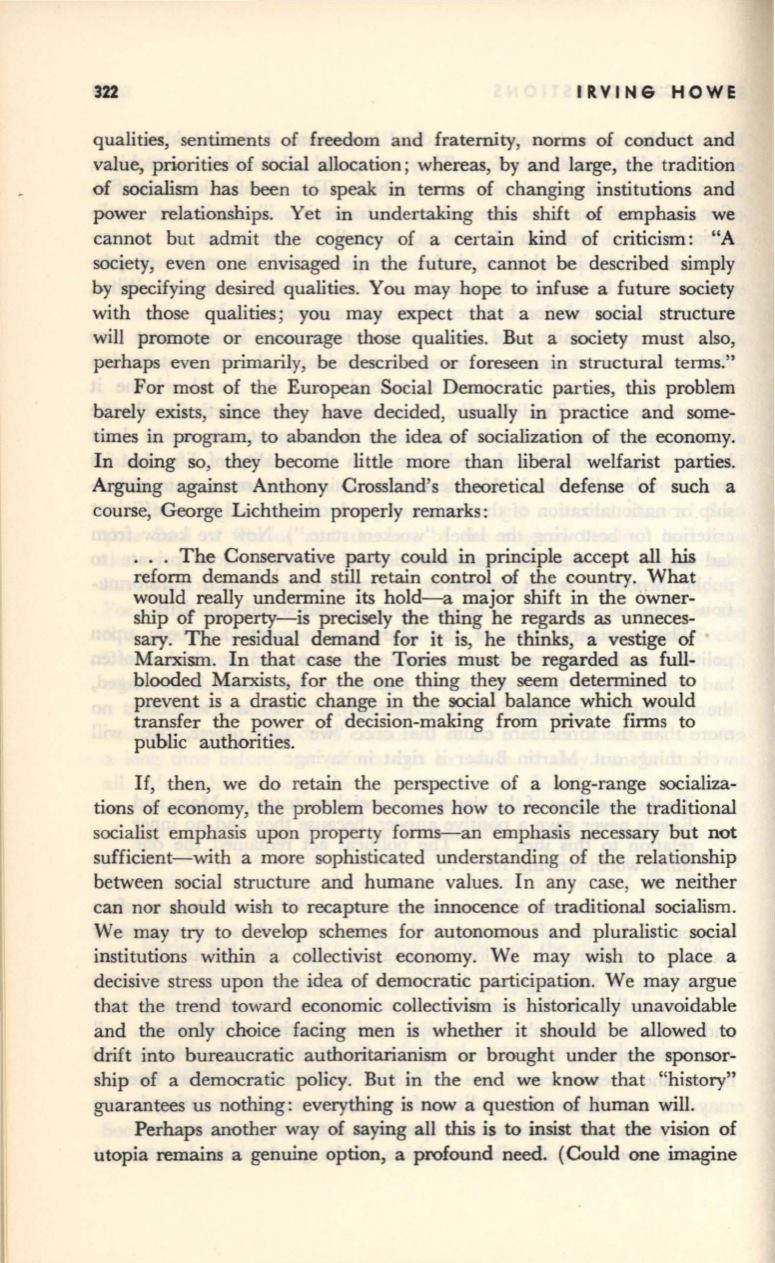
322
IRVINE; HOWE
qualities, sentiments of freedom and fraternity, norms of conduct and
value, priorities of social allocation ; whereas, by and large, the tradition
of socialism has been to speak in terms of changing institutions and
power relationships. Yet in undertaking this shift of emphasis we
cannot but admit the cogency of a certain kind of criticism: "A
society, even one envisaged in the future, cannot be described simply
by specifying desired qualities. You may hope to infuse a future society
with those qualities ; you may expect that a new social structure
will promote or encourage those qualities. But a society must also,
perhaps even primarily, be described or foreseen in structural terms."
For most of the European Social Democratic parties, this problem
barely exists, since they have decided, usually in practice and some–
times in program, to abandon the idea of socialization of the economy.
In doing so, they become little more than liberal welfarist parties.
Arguing against Anthony Crossland's theoretical defense of such a
course, George Lichtheim properly remarks:
. . . The Conservative party could in principle accept all
his
reform demands and still retain control of the country. What
would really undermine its hold-a major shift in the owner–
ship of property-is precisely the thing he regards as unneces–
sary. The residual demand for it is, he thinks, a vestige of
Marxism. In that case the Tories must be regarded as full–
blooded Marxists, for the one thing they seem determined to
prevent is a drastic change in the social balance which would
transfer the power of decision-making from private firms to
public authorities.
If,
then, we do retain the perspective of a long-range socializa–
tions of economy, the problem becomes how to reconcile the traditional
socialist emphasis upon property forms-an emphasis necessary but not
sufficient-with a more sophisticated understanding of the relationship
between social structure and humane values. In any case, we neither
can nor should wish to recapture the innocence of traditional socialism.
We may try to develop schemes for autonomous and pluralistic social
institutions within a collectivist economy. We may wish to place a
decisive stress upon the idea of democratic participation. We may argue
that the trend toward economic collectivism is historically unavoidable
and the only choice facing men is whether it should be allowed to
drift into bureaucratic authoritarianism or brought under the sponsor–
ship of a democratic policy. But in the end we know that "history"
guarantees us nothing: everything is now a question of human will.
Perhaps another way of saying all this is
to
insist that the vision of
utopia remains a genuine option, a profound need. (Could one imagine


